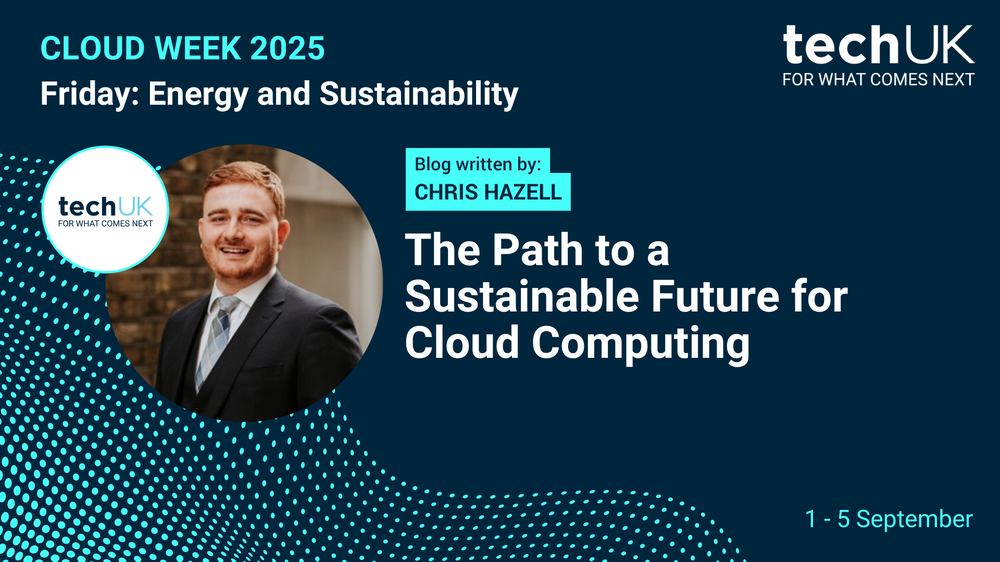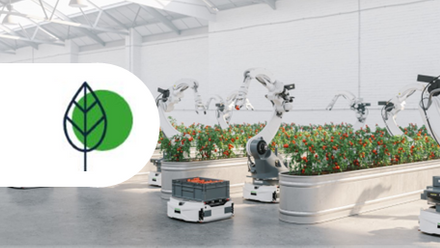The path to a sustainable future for cloud computing

Cloud computing and a more sustainable future for the digital world
At a time of increasingly frequent extreme weather events, high electricity costs, and uncertain global supply chains, sustainability and energy-efficiency should be at the heart of any digital transformation strategy. Cloud has the potential to support a more sustainable digital economy, but organisations should see it as the foundation for sustainable best practice and not a panacea.
Cloud has become a key driver of the UK’s digital economy, giving businesses of all sizes and sectors access to computing resources that are flexible and scalable on-demand. Applications, platforms, data storage and infrastructure can all be delivered as a service, allowing for more flexible and efficient use of resources and potentially a reduction in energy use and carbon footprint.
The paradox of sustainable digital transformation
Boosting productivity is essential if we want a more prosperous society and rising living standards, and the tech sector – including cloud computing - is a key enabler of any credible growth strategy. Digital transformation is not a luxury but an imperative for UK businesses and public sector organisations.
There’s also no getting around it, digital transformation is dependent on electricity. As with all industries that underpin economic growth, productive activity is reliant on energy, and IEA research predicts global energy demand from data centres could double from 2022 to 2026. As more businesses benefit from digital transformation, that inevitably shifts some of their carbon footprint and energy use to the tech sector.
However, we know that technology tends to become more energy efficient as it matures. Total energy use from the tech sector has risen over time as digital adoption increased, but performance per watt also improved. From 1946 to 2009 computations per joule of energy doubled every 18 months. Recent research shows that although the growth in energy efficiency has slowed, it continues to grow exponentially, doubling every 2.2 years from 2008 to 2023.
Digital products and services have also been key to efficiency gains in other industries, from manufacturing to transport, and are seen as an important enabler for the green transition across the entire economy.
This trajectory shows that efficiency gains are possible even as demand grows. Cloud can be a key enabler for the next phase of this energy-efficiency journey.
Cloud and sustainable digital transformation
Shifting to a consumption-based model and concentrating digital services in purpose-built data centres means cloud has some clear advantages over traditional CapEx-based procurement. Cloud customers benefit from more efficient use of hardware through virtualisation and multi-tenancy, dynamic provisioning of resources, and ongoing investments made by cloud providers without the need for their own capital investment.
Research by Accenture and AWS suggests moving from on-premises infrastructure to cloud-based infrastructure for compute-heavy or storage-heavy workloads can result in a significant emissions reduction. This trend is supported by research from Google and Lawrence Berkeley National Laboratory.
Research into the energy efficiency of European data centres also suggests that the higher utilisation rates and more frequently updated technology of cloud infrastructure could reduce energy usage of running business applications by nearly 80% when compared with on-premises enterprise data centres. These figures highlight the potential - but realising them depends on how cloud is designed, used, and managed.
While cloud has potential as an enabler of carbon savings, achieving the best possible environmental outcomes requires both providers and users of cloud services to take shared responsibility for sustainability and regularly review best practice at every level.
For cloud providers, this means continued investment in energy and resource efficiency and giving customers access to more granular and specific data about the environmental impact of their cloud consumption, including access to Scope 3 data wherever possible.
For users of cloud services, it means realising that a “lift and shift” migration followed by a “file and forget” approach to data governance and engineering will seriously undermine the sustainability benefits of cloud computing
Cloud sustainability: an ongoing discipline, not a service feature
While cloud providers have made huge investments in sustainable infrastructure, moving to cloud will not automatically guarantee a reduction in an organisation’s carbon footprint and computing as-a-service does not necessarily equate to sustainability as-a-service.
To minimise the impact of our digital infrastructure on the planet, users of cloud services must recognise that engineering choices and user behaviour can result in two similar customers using the same cloud service seeing wildly different carbon footprints, and there are important steps they can take to operate more sustainably.
A credible approach to cloud sustainability means embracing a “GreenOps” culture by adapting FinOps practices to track and report carbon metrics, revising data strategies to minimise the storage of unused “dark data” in the cloud, and harnessing green software principles and cloud-native technologies to develop and deploy more energy-efficient applications.
As an industry, we should take a holistic view of cloud sustainability, considering what we can do as individuals, as organisations, and as a society to consume cloud as efficiently as possible. This approach will be essential as demand for cloud services grows, through more widespread digital transformation and the adoption of emerging technologies such as artificial intelligence (AI).
Ultimately, as consumer demand and increasing pressure from governments and investors drives businesses across the economy to look for more climate-friendly technologies, cloud computing can play a key role in enabling a more sustainable future – but only if seen as a powerful platform for change on which organisations build energy-efficient solutions and embrace a GreenOps mindset.
Call for contributions: A sustainable future for Cloud, Data and AI
We are asking techUK members to submit case studies and success stories highlighting the latest innovation and best practice that supports a sustainable approach to cloud, data and AI.
techUK - Committed to Climate Action
Visit our Climate Action Hub to learn more or to register for regular updates.
By 2030, digital technology can cut global emissions by 15%. Cloud computing, 5G, AI and IoT have the potential to support dramatic reductions in carbon emissions in sectors such as transport, agriculture, and manufacturing. techUK is working to foster the right policy framework and leadership so we can all play our part. For more information on how techUK can support you, please visit our Climate Action Hub and click ‘contact us’.
Latest Report
Upcoming climate events
Latest news and insights
Get our climate insights straight to your inbox
Climate, Environment and Sustainability updates
Sign-up to get the latest updates and opportunities from our Climate, Environment and Sustainability programme.
Learn more about our Climate campaign

Become a member








